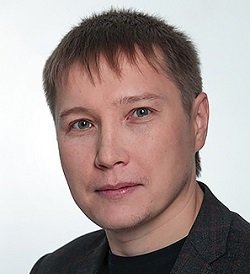ChatGPT rethinks poems of 20-40 year-olds on mother, homeland, and love

In Kazan, an evening titled “Poets vs Artificial Intelligence” was held at the historic Kamal Theatre. Ahead of the Day of the Native Language, the Union of Writers of Tatarstan and the World Forum of Tatar Youth invited authors to read their poems, after which ChatGPT presented its version of the works. While the audience clearly favoured the creations of living poets, the organisers hinted that it wouldn’t hurt to check again in six months to see who had improved their writing skills.
“We decided to hold a competition, but the poets didn't like the word”
As explained by the chairman of the forum, Raynur Khasanov, poems were proposed to be written by various neural networks. However, the event organisers decided that ChatGPT was the most capable of handling this task. How it does so remains unknown, as OpenAI keeps its developments secret.
The idea for the evening came to poet Bulat Ibrahimov during a meeting with his friends Rafis Nuruullin and Bayazit Zaydullin.

Some need eternity, but he needs 30 seconds
According to Khasanov, there was even an idea to hold a vote: who would write better — the poets or AI? But in the end, the process was structured differently: ChatGPT was given the poems intended for the evening’s reading to analyse. Within 30 seconds, it offered its version in Tatar. By the way, Wi-Fi didn’t work well in both buildings of the Kamal Theatre, so all preparations were made in advance.
The poets read poems on various topics. For example, Bulat Ibrahimov presented a poem about mother. Fanil Gilyazov and Ruzal Mukhametshin traditionally turned to civic lyricism. Elvira Khadieva captivated the audience with a love poem.
While the poets were reading with soul, with pauses, the poems of ChatGPT lacked a crucial element — there was no reciter with a face, a costume, or a biography.
It’s curious to imagine how they would have been received if, for example, the master of oratory Fanis Zigansha had voiced the AI-generated poems! Perhaps the audience would have paid less attention to the mismatched rhymes and unusual word usage. However, it must be noted that some of them, as they say, touched the soul.

At the event, three voices presented the new poems. One was ChatGPT itself, which speaks Tatar with a Finnish Tatar accent. The other two voices were from the Speech.tatar website developed by the Institute of Applied Semiotics of the Academy of Sciences of Tatarstan — actors from the Kamal Theatre, Almaz Garaev and Alsou Kayumova.
After the poems were read, one elderly audience member stood up and quoted a quatrain by Lena Shagirjan, saying, “Now this is real poetry, what do we need your machines for!”
“If there were an exhibition of works created by artificial intelligence, we would still choose the artists," said Khasanov, as if defending the concept’s choice. “We are not just interested in looking at a painting, but in studying the life of the person behind it. Don't think that Khasanov is pushing for artificial intelligence everywhere — I stand for real art. But technology is advancing, and we, Tatars, must not stay on the sidelines.”
“If we conquer death, will creativity disappear?”

“Like other great discoveries of humanity, AI contributes to development," continued Yoldyz Minnullina, who is currently preparing her first major collection at the Yulbasma publishing house. “If that answer suits you. I think a lot about artificial intelligence. Creativity is a struggle with time, with death. That’s why, for me, the inventor of the first wheel, the person who came up with E=mc², is a great creator. And the invention of artificial intelligence is a great discovery. But if one day we conquer death and become immortal — will creativity then disappear?”
She read a poem: “This plant, it grows. This animal — it preserves the living. This person, he seeks words, compiles a dictionary.”
Over the past year, artificial intelligence has significantly improved its proficiency in the Tatar language, the organisers noted. A year ago, it struggled with writing in Tatar, and hosting such an evening wouldn’t have been worth it. In six months, they plan to hold the readings again!
Radif Kashapov
Tatarstan